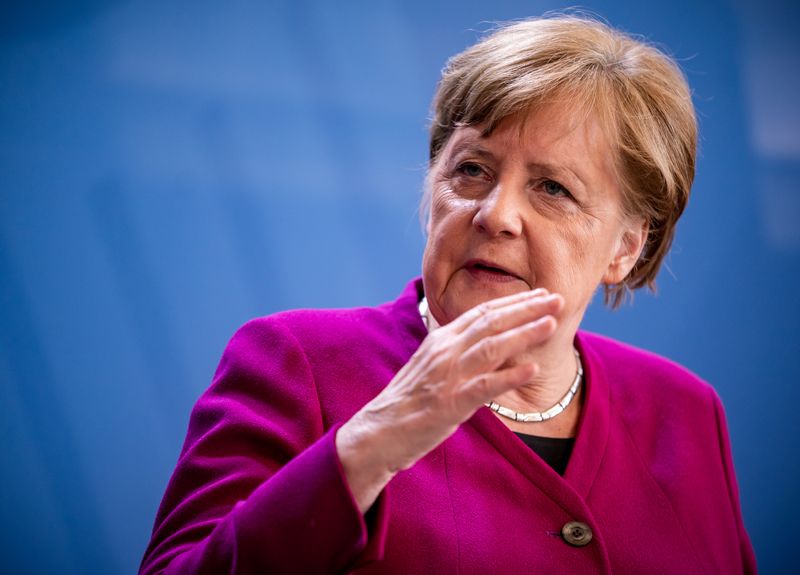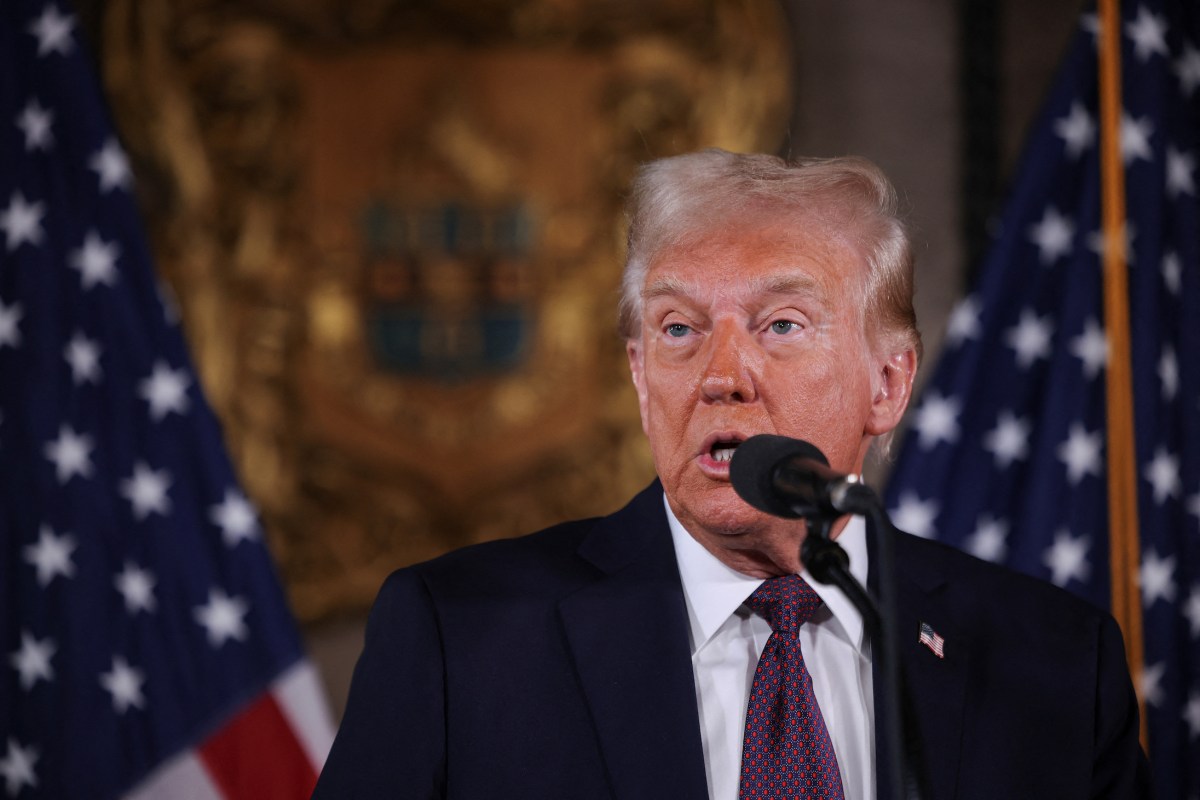BERLIN (Reuters) – German Chancellor Angela Merkel signalled on Thursday she was open to offering major financial support for a coronavirus recovery package worth as much as 2 trillion euros, but wanted to see how it would be used before committing.
Speaking to reporters after a video conference of EU leaders on setting up a joint fund to avert an economic collapse in parts of the 27-member bloc, Merkel said leaders agreed on the need for a fund but disagreed on details.
“It was clear to everyone that we need such a recovery fund,” Merkel told reporters. “I want to say very clearly that such a joint solution is in Germany’s interests, because things can only go well for Germany if they go well for Europe.”
Europe is facing a big economic shock from the spread of the novel coronavirus and European Central Bank Governor Christine Lagarde told leaders the pandemic could cost them between 5% and up to 15% of their economic output, a diplomatic source said.
“We were all agreed that this wasn’t about 50 billion euros. I said only that it wouldn’t be good if one simply announced the size – you have to justify it. That was the spirit in which I was speaking,” said Merkel.
Asked about the amount under discussion, she said she had mentioned a trillion euros only in the context of working out the size of any economic programme needed.
“That’s why we have asked the Commission to make proposals to us, assessing the individual sectors and working out how much damage they will suffer,” she said, hightlighting the tourism and car sectors.
Saying all the elements of a package had to be put in place during May and be ready by June, 1, Merkel acknowledged differences between countries but said the atmosphere of talks had been good.
“We weren’t always in agreement, for example on whether that should be done in the form of grants or credits or how it should be implemented, but we all agreed that this recovery fund had to be closely linked to the next medium term financial framework,” she said.
Germany would have to make higher contributions to the future EU budget, she said, and reiterated her opposition to euro bonds.
“It is not acceptable that debts are mutualised,” she said.
(Reporting by Madeline Chambers, Thomas Escritt, Andreas Rinke)





















